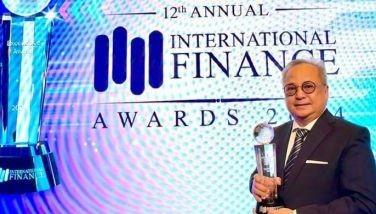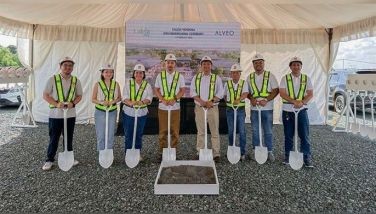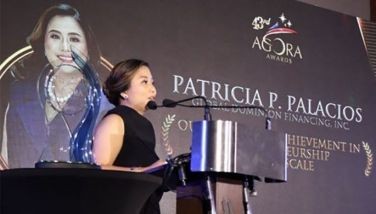Duterte as whistle-blower: How will vaccine probe end?

Did President Duterte blow the whistle? A week ago it was he who disclosed that many soldiers had already been inoculated with vaccine against COVID-19. Immediately there was widespread uproar: How did that happen? Who got the vaccines in? Where did they come from, and how?
At least two Cabinet members, three military officers and the presidential spokesman tried to do damage control, confirming what Duterte had said, but gave varying justifications. Thus we learned from their uncoordinated responses that the vaccine had come from China’s state-owned pharmaceutical firm Sinopharm, and that they had been administered to his close-in security personnel without registration or authorization from the Food and Drug Administration as required by law.
On Dec. 30, Justice Secretary Menardo Guevarra ordered the National Bureau of Investigation to find out.
Apart from the NBI investigation, the FDA and the Customs bureau said they would do their own probes. Topping these moves, the Senate, convening as a Committee of the Whole, will conduct public hearings this month. It will look into how the Duterte government has been handling (or mishandling) the securing of safe and efficacious vaccines and how it plans to use them for mass inoculation that hopefully would end the country’s extended lockdown and quarantines, said to be the longest in the world.
Sounding like a whistle-blower, the President was quoted as saying in a meeting with FDA and other health officials in Malacañang: “I have to be frank. I have to tell the truth. I will not foist a lie. Many [soldiers] have been vaccinated.” Then he hastened to add that the vaccination was “just for the select few, not all soldiers, because it is not yet policy.”
It turned out that the soldiers who got inoculated belonged to the Presidential Security Group. The PSG commander, Brig. Gen. Jesus Durante III, confirmed the inoculation but did not name the vaccine used and its source. He claimed that he didn’t ask for Duterte’s permission before the two-dose vaccinations were carried out in September and October, but informed him sometime after.
Durante even claimed that no medical professionals were involved, and that they did their own research: “We vaccinated ourselves. It’s so easy.”
This is what four Cabinet members have said:
His order to NBI Director General Eric Distor, Secretary Guevarra pointed out, was a “general instruction… not zeroing in on the PSG or on any particular incident of unauthorized vaccination.” However, he added that if the NBI finds sufficient basis to file a complaint against any government official or anyone else behind the use of unauthorized vaccines, the DOJ would conduct a preliminary investigation and, if probable cause had been established, it would file the case in court.
Defense Secretary Delfin Lorenzana, chairman of the National Task Force on COVID-19 (NTF), said he had not been informed about the inoculation of the PSG troops. Although he had heard talk about it, he said he didn’t inquire into the matter or sought to find out who authorized it. He simply remarked, “[The PSG] should explain why they did it, because they violated FDA rules.”
Wasn’t the unauthorized vaccination involving AFP troops in the PSG an issue that should be a concern for Lorenzana, both as DND chief and as NTF head?
Interior Secretary Eduardo Año, NTF co-chairman and a former AFP chief, confirmed Duterte’s disclosure on Monday. “I knew some from the Cabinet and the PSG [have been vaccinated],” he said, but added that “until those people confirm it for themselves I cannot say their names.” Later he corrected himself, saying only one Cabinet member got inoculated but still he didn’t give any name. (Was he speaking for himself?)
Año also claimed the PSG inoculations were not illegal because the vaccine used had been given an emergency use authorization (EUA) from China, its country of origin. What he didn’t say was that the FDA has to give its own EUA for the vaccine’s use in the Philippines. He also claimed that because the vaccine was categorized under personal use, its use by the PSG didn’t violate FDA rules.
Presidential spokesman Harry Roque remarked that the use by the PSG of “donated” vaccines didn’t violate the anti-graft law, because the vaccine could be deemed as a “token” of little value. At a Malacañang news briefing, he assured, “Tokens are allowed, especially during Christmas. Tokens are acceptable, meaning those that are of not much value.”
Dr. Anthony Leachon, a former adviser to the NTF, disagreed with Roque’s calling the Sinopharm vaccine a token, pointing out that the required two doses of the vaccine cost about P 7,450. “That’s not a token amount,” he riposted, reminding Roque, a lawyer, that the anti-graft law limits to P5,000 the amount of a gift that a government official may accept.
Senate Minority Leader Franklin Drilon, a former justice secretary, backed up the NBI probe but didn’t find the statements of Duterte’s men credible. “Nagkabuhul-buhol na sila sa kakapalusot (They have twisted themselves into knots trying to find excuses),” he said. “They are lying through their teeth in a bid to protect those who are principally involved in the illegal shipment of the unauthorized vaccines to the country.”
“They cannot hide the truth,” said Drilon, who urged the Senate to summon PSG commander Durante to its public hearing. “The truth will come out and we will find their fingerprints all over it.” Those who caused the illegal importation and use of the unauthorized vaccine must be held responsible, he stressed, concluding, “Otherwise the environment of impunity is enhanced.”
Expressing concern over the safety and efficacy of the vaccines given to PSG members, FDA chief Eric Domingo asserted his agency’s authority to regulate the distribution and use of vaccines in the country and its important role as a unit of government. Remonstrating against those “who thought FDA is like a rubber stamp,” he said: “Maybe people don’t understand that we’re here not to make things difficult but to make things safe and effective for everybody.”
Let’s wait and see what will happen in the promised investigations, impelled by Duterte’s perhaps inadvertent whistle-blowing.
Remember what has happened to other whistle-blowers in the past: they get ignored.
On another note, let me correct what I wrote here last Dec. 26: “As of last count, 54 legal practitioners have been slain since President Duterte assumed office in July 2006.” An Australian lawyer-reseacher, Gill Boehringer, has informed me that the accurate number should be 62, not 54. As factual proof, he sent a list of the names of the 62 lawyers killed from July 1, 2016 to Dec. 23, 2020, with the corresponding dates they were slain.
The list was prepared by the International Association of People’s Lawyers (IAPL) Monitoring Committee on Attacks on Lawyers, of which Boehringer is the lead researcher. Of the updated total number, 45 were lawyers, eight were judges and nine were prosecutors. Boehringer added that 16 other lawyers survived “murderous attacks” (nine attorneys, three judges, four prosecutors).
My deep condolences to Saeed, Andres and all those who have loved Domini Torrevillas, my friend and fellow columnist in this space for years, who has passed on to the Great Beyond. A peaceful 2021 to all!
* * *
Email: satur.ocampo@gmail.com
- Latest
- Trending






















